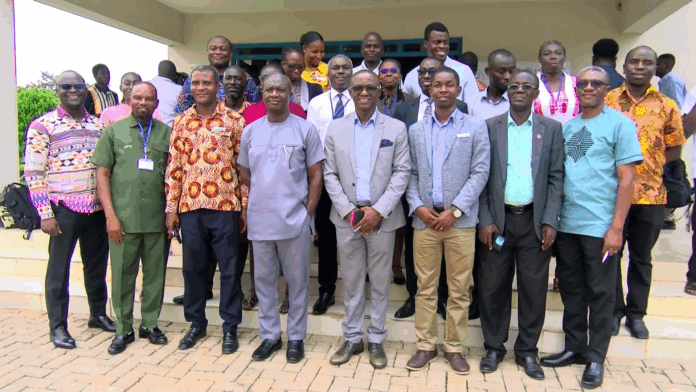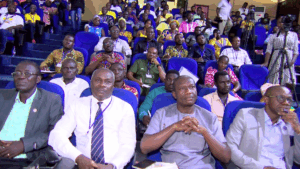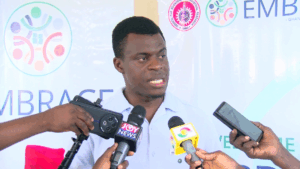Scientists at the Crops Research Institute of the Council for Scientific and Industrial Research (CSIR-CRI) are adopting strategic and environmentally friendly efforts to restore lands and forests heavily degraded by overexploitation through illegal mining, logging and agriculture.
They observe the near extinction of some indigenous crops and tree species in rural communities in Ghana, including cocoyam, Mahogany and Odum.
Under a new project to conserve biodiversity and sustain life, 25 hectares of degraded lands in Ghana and Kenya are expected to be restored while revitalizing the endangered crops.
In 2022, Ghana lost 18,000 hectares of primary forest, almost 70% increase from 2021. It represented the biggest leap in forest loss of any country in recent years.
Illegal mining, overexploitation through illicit logging and agriculture are the attributable causes for the increasing depletion and degradation.
Newton Annobil Attuahene is the District Manager of the Forestry Commission in Bechem.
“Most of our indigenous crops including Odum, Mahogany, and others are endangered. The more we are cutting and not replacing them,” he highlighted.
The environmental havoc is seeing some of the Ghana indigenous crops and trees go extinct and others neglected for culinary and medicinal purposes.
The situation leaves farmers distraught as Ghana is failing to preserve some of its precious staples.
“We hardly find taro tubers lately. It’s scarce. We used to grow a native type of yam called “Nteretere”. It’s been a while we saw some. My children haven’t even seen them before,” she said.
The Crops Research Institute is spearheading the charge to empower local communities to restore degraded ecosystems, preserve biodiversity, and promote sustainable farming practices.
Under the ‘Engaging Local Communities in Minor Crops Utilization for Biodiversity Conservation and Livelihood Enrichment’ (EMBRACE) project, scientists are seeking to promote afforestation and agroforestry conservation.
Launched in 2024, Principal Investigator, Dr. Clement Oppong Peprah highlights activities conducted under the 3-year project.
“Since we are looking at revitalizing marginalized crops in our food systems, we’ve also collected some of the farmers safe seeds that they have in their farms. We are multiplying these crops to be reintroduced to the farmers,” he noted.
The second stakeholder consultative dialogue under the project brought together farmers, legal experts, researchers and other relevant institutions for the collective goal of safeguarding the gradually depleting ecosystem.
Director of the Crops Research Institute, Dr. Maxwell Darko Asante is positive of enhanced food security under the project.
“It’s important that we don’t just think about yields and monocropping and doing large acreages of rice or any crop. We must also think about the environment and our minor and indigenous crops, so that the whole ecosystem runs together and is very balanced for our sustenance,” he said.





